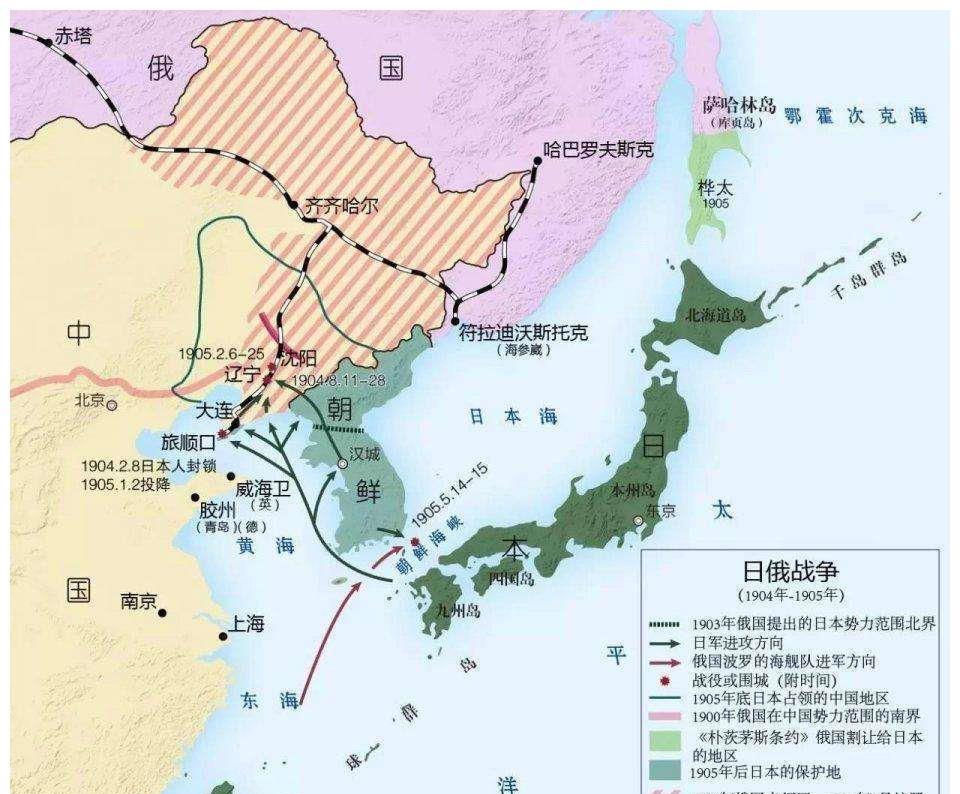Between 1904 and 1905, Russia and Japan fought a war between imperialist powers in northeast China for the interests of the Far East. The decadent Qing government was powerless to do anything about it, nor did it dare to easily choose a side.

The war ended in a crushing defeat for Tsarist Russia, but many people were puzzled by this, after all, the main force of Tsarist Russia was not in the Far East, and Japan, in the case of full superiority, was only a crushing victory, not much advantage.
Judging from the treaties signed later, the losses of Tsarist Russia were not small, and the painstaking expansion of the scope of strength was transferred to Japan, and the southern part of Sakhalin Island was ceded to Japan.
So why doesn't Tsarist Russia want to continue fighting? Spitting out the flesh of the mouth like this is not the character of the Russians.
We know that Tsarist Russia has expanded for hundreds of years, so as not to lose the ability to resist because of this war, and that the main force of Tsarist Russia is still in Europe, losing only a part of the army in the Far East.
Before the Russo-Japanese War, Russia looked down on the Japanese and felt that Japan was vulnerable, and the Russian Minister of War even thought that one Russian soldier could deal with three Japanese soldiers, and blind arrogance made Tsarist Russia lose without a war. It was precisely by taking advantage of the Russians' pride and lack of preparation that Japan adopted the method of surprise attack, which defeated Tsarist Russia and could only concede defeat.
Because it is absolutely impossible for Tsarist Russia to transfer the main European forces to the Far East because of the competition with Japan for the interests of the Far East, otherwise it would not be a matter of losing some interests in case of a fire in the backyard, although Nicholas II was more arrogant and arrogant, but he was not old and confused.
Russia's troops and logistics in the Far East are limited, and although the Trans-Siberian Railway has begun to open to traffic, but the section from Lake Baikal has not yet been opened, if the troops are transported to the Far East, it is too wasteful of time, and the logistical support can not keep up, it is estimated that only at this time Tsarist Russia feels that its territory is too large.
Fighting against Japan and controlling sea supremacy is extremely important. However, although the Russian Navy claims to be the third in the world, from the results, all this is bragging. Not only was the Far East Fleet beaten to pieces, but even the Baltic Fleet, which had come to reinforcement, was almost completely annihilated.
The defeat of the Navy led to the loss of Tsarist Power in the Far East, the complete loss of the leading power of the Far East by Tsarist Russia, and directly led to the defeat of the Russian Army in the Far East, until the establishment of the Soviet Union, the Navy has not yet recovered, which shows the huge losses of the Tsarist Navy in World War I.
Tsarist Russia at the beginning of the 20th century faced many problems, and it was already a matter of time before it collapsed.
Although on the surface Tsarist Russia still belongs to one of the world's great powers, the economy of Tsarist Russia is really too poor, and a serious economic crisis has broken out, the entire industrial production field has been paralyzed, and political strikes and armed insurrections have occurred continuously.
During the Russo-Japanese War, the Revolution of 1905 also broke out, which Lenin called the "general exercise" of the October Revolution, which left the Tsarist government with no time to worry about itself.
As several major powers found their own allies, a confrontation between two major military blocs began to appear in Europe, and Tsarist Russia could no longer take care of Japan.